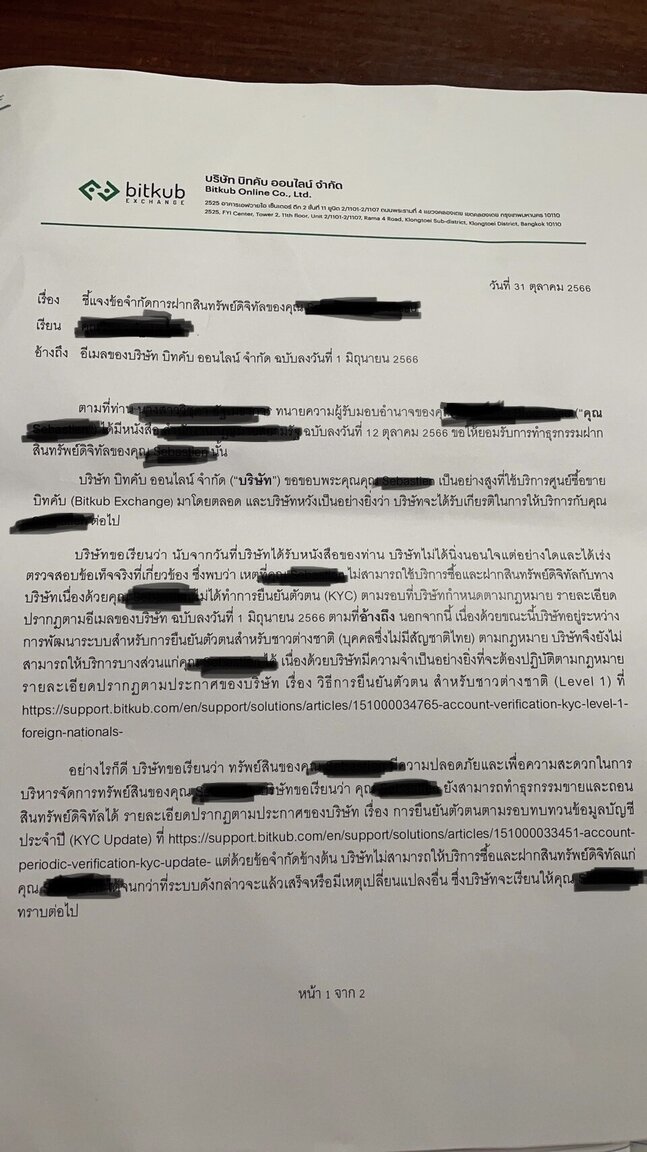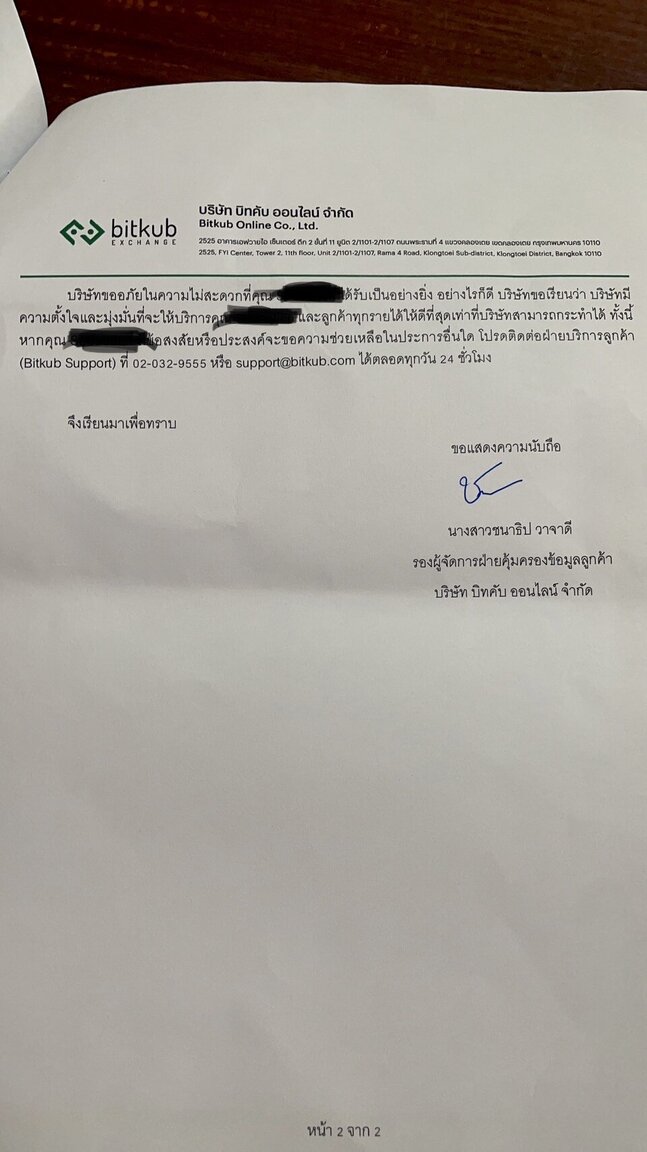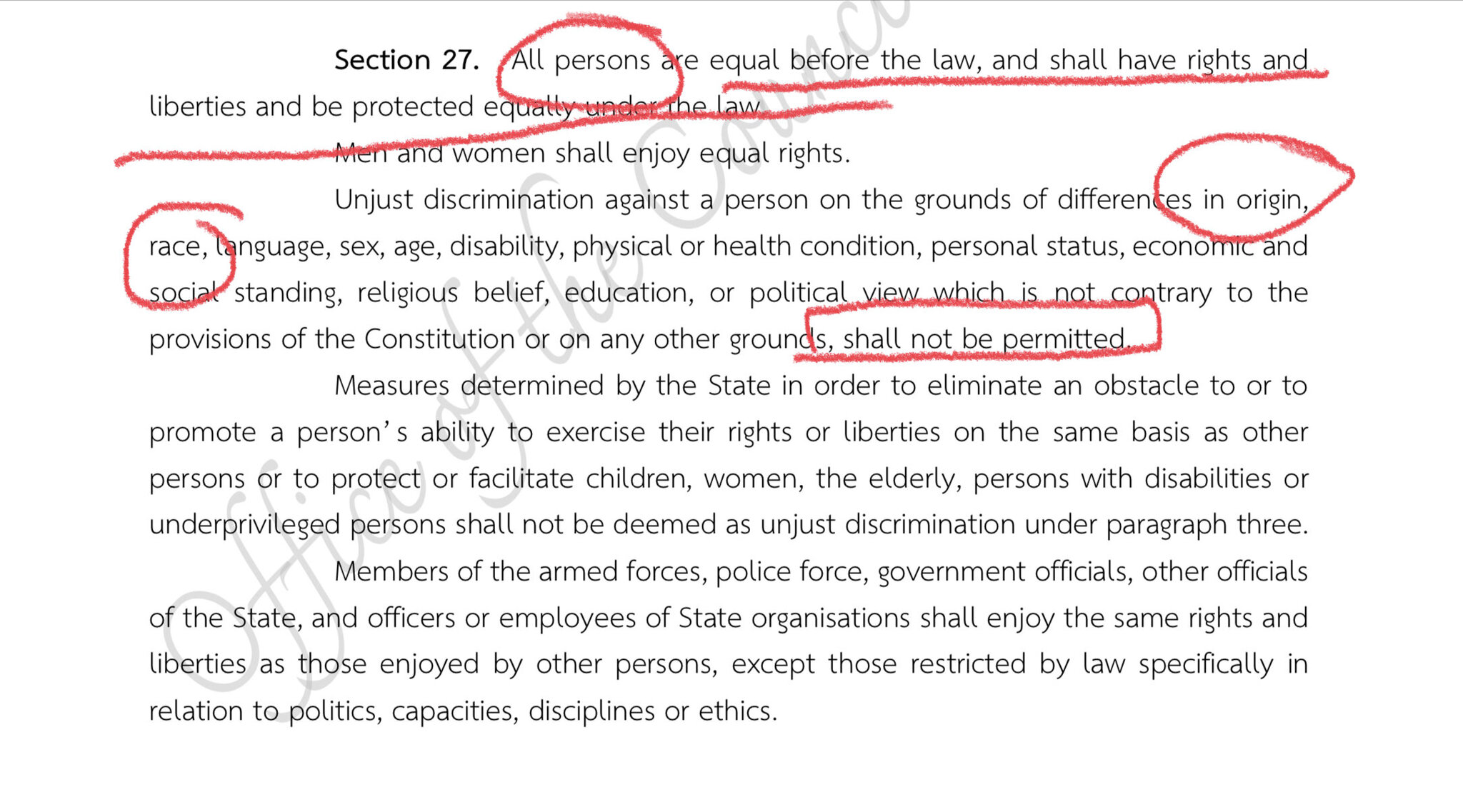
YaDongImproved
Member-
Posts
49 -
Joined
-
Last visited
Content Type
Events
Forums
Downloads
Quizzes
Gallery
Blogs
Everything posted by YaDongImproved
-
Yes but the land must be empty, no building, for superficies. I would recommend Sap Ing Sith over superficies depending what you want to do. If you do usufruct, make a better contract than just using the form of the land department. It worths it. If you are not married, add a MOU to your usufruct. I talk with experience.
-
1. The bank goes to court and get a judgment. You will know by the judgement exactly how much is owed with interest and sometimes legal fees. 2. The bank can execute the judgment with the department of legal execution department (https://www.led.go.th/?lang=en) It is an auction and takes months normally. They can execute on any of the property belonging to the people mentioned in the judgment, including the guarantors that are normally part of the case. The people sued can get a copy of the decision at the provincial court (which is probably the one have jurisdiction depending on amounts) easily. Bank rarely calls. They send documents at the official address of the people which is their ta bian baan. You have 15 days to make a defense if you receive it in hands and 30 days if put on the door. Sebastien from ThaiLawOnline.
-
In Thailand, the maximum allowable level for music and other forms of noise is regulated by the Enhancement and Conservation of the National Environmental Quality Act B.E. 2535 and its subsequent amendments. The specific decibel limits can vary depending on the zoning of the area (residential, commercial, industrial, etc.) and the time of day. If you are experiencing excessive noise from a neighbor in Thailand, there are several steps you can take to address the issue: 1. Communication: The first step is often to speak to the neighbor directly. They may not be aware that they are causing a disturbance. A polite conversation explaining the problem might resolve the issue amicably. 2. Mediation: If a direct conversation doesn't yield results, or if you prefer not to confront the neighbor, seek out mediation services. Some communities have local mediation centers or community leaders who can help address neighbor disputes. 3. Building Management or Juristic Person: If you live in a condominium or a housing estate with a management committee or a juristic person, report the issue to them. They may have rules and regulations in place to handle such complaints and can take action on your behalf. 4. Local Authorities: For persistent problems or when the noise constitutes a public nuisance, you can contact your local municipal office or the district office (OrBorTor). They can investigate the complaint, and if the noise is found to violate local ordinances, they may take action against the offending neighbor. 5. Police Assistance: If the noise is significant and especially if it occurs during quiet hours or constitutes a disturbance of the peace, you can report it to the police. Thai law prescribes quiet hours, typically from 10 pm to 6 am. Police intervention might result in a warning or require the neighbor to cease the noise. 6. Legal Action: As a last resort, you may seek legal action. Under the Civil and Commercial Code, a person affected by a nuisance exceeding the normal bounds of tolerance, given the nature of the locality and other factors, may file a claim at the court seeking relief or damages. It is important to document your complaints, the times and nature of the noise, and any communications you've had attempting to resolve the issue. Keep evidence such as recordings, which could be used to substantiate your claim if legal action is ultimately necessary. Make police reports. If you decide to go through a legal action, the laws and regulations that cover noise pollution and disturbances are numerous and may vary based on the location and type of noise. Here are some legal resources that you might reference when dealing with a noise complaint: 1. Civil and Commercial Code (Tort Law): The Civil Code allows those who are affected by excessive noise to file a nuisance complaint. According to Section 1337, if a person is causing others discomfort or inconvenience beyond the normal limits of toleration, the affected party has the right to request the court to prohibit such actions and seek damages. Thai Lawyers usually use 420 and 420 of the Commercial and Civil Code of Thailand. 2. Land Traffic Act: This law may be applicable if the noise disturbance is caused by vehicles. The Land Traffic Act sets rules for vehicle noise levels and can be used to address noise disturbances that come from traffic. 3. Public Health Act: The Public Health Act covers regulations related to environmental health, which may include noise pollution. Local administrative organizations often use this act to enforce noise control measures. 4. Environmental Quality Promotion and Conservation Act: This act provides general principles for the maintenance of environmental quality, which may cover noise levels. 5. Local Municipal and Administrative Organization Regulations: Often, local government bodies have their own set of rules and ordinances regulating noise levels, quiet hours, and disturbances. These regulations are enforced by local authorities and can vary from one municipality or province to another. 6. Ministry of Interior Announcements: Sometimes specific announcements or regulations from the Ministry of Interior can set parameters or guidelines for noise levels in residential areas. For these laws to be applied to a specific situation, the noise has to be considered unreasonable and excessive, beyond normal tolerable levels, and generally affecting quality of life or health. It's important to consult with a legal expert or a lawyer to navigate the necessary legal steps, as they can guide you on the most appropriate law to use and the procedure to follow. Sebastien (ThaiLawOnline).
-
ThaiLawOnline can do it for 6,000 baht including legal advice, Thai and English, instructions and from anywhere.
-
The SEC of Thailand can receive complaints about Bitkub. You can submit a complaint at complaintATsec.or.th The matter is also in front of the South Civil Court in Bangkok.
-
Thanks. Since Covid, many things have changed. I thought someone would have experience with Phnom Penh, Kuala Lumpur, Vientiane or another place. The websites of each of them do not list the same paperwork. A long time ago, 15 years ago, it was Sri Lanka. Then, it was Kuala Lumpur. Now, I am a little lost.
-
Hi, I've been searching online for information on obtaining a non-B visa for a Turkish citizen working in a new company with a registered capital of 2 million baht. It seems like the process has become more complicated than it used to be. Where would you recommend applying for a non-B visa under these circumstances? I've heard that Vientiane might be a good option, but Singapore requires submitting the application 14 days in advance, and Kuala Lumpur has stricter requirements. Thanks for your advice!
-
Transfer tax
YaDongImproved replied to cheeryble's topic in Real Estate, Housing, House and Land Ownership
We need more information. A family member can transfer to another one by inheritance, by gift, or even sell the property. In these 3 cases, transfer fees and taxes are not the same. -
Illegal for any businesses or landlord that leases (or subleases) five or more property units to individual lessees. Property is defined to include any kind of residential accommodation, including apartments, condos, flats, or houses. Dormitories, guesthouses, hostels, and hotels are regulated under separate statutes. https://www.tilleke.com/insights/new-contract-controls-introduced-residential-property-leasing-businesses-thailand-2/
-
That’s we want to test, if it applies to foreigners or not. Do note the word “people” and not Thais or citizen. The fact that foreigners can’t withdraw just like someone said, when you use the platforms for years, is discriminatory. And think Bitkub will negotiate and just agree to KYC but right now, yes, they apologized, find excuses but they really keep me from getting it in Thailand. My account here is only linked to Bitkub and it has been weeks and weeks.
-
While there may be some violations of regulations, such as TM30 or condominium rules, it is unlikely that criminal laws are being broken. The only exceptions would be if someone were engaging in public nudity, drinking in public places, or causing other disturbances that could be inside the criminal code.
-
Other provinces demand extended nightlife hours too
YaDongImproved replied to snoop1130's topic in Thailand News
Alcohol is 5% of the government incomes. Excellent text on ThaiLawONline (I can't post the link) to show how irrational is the current situation. -
Hotels are allowed to serve alcohol to guests at any time of day, and airports are allowed to sell alcohol to passengers who are departing on international flights. Additionally, some provinces have been granted special permission to extend the hours of alcohol sales. For example, in the tourist city of Pattaya, bars and nightclubs are allowed to operate until 4:00 a.m. I believe the excise department can also give special authorization and entertainment licenses too. It is not very rational in Thailand.





